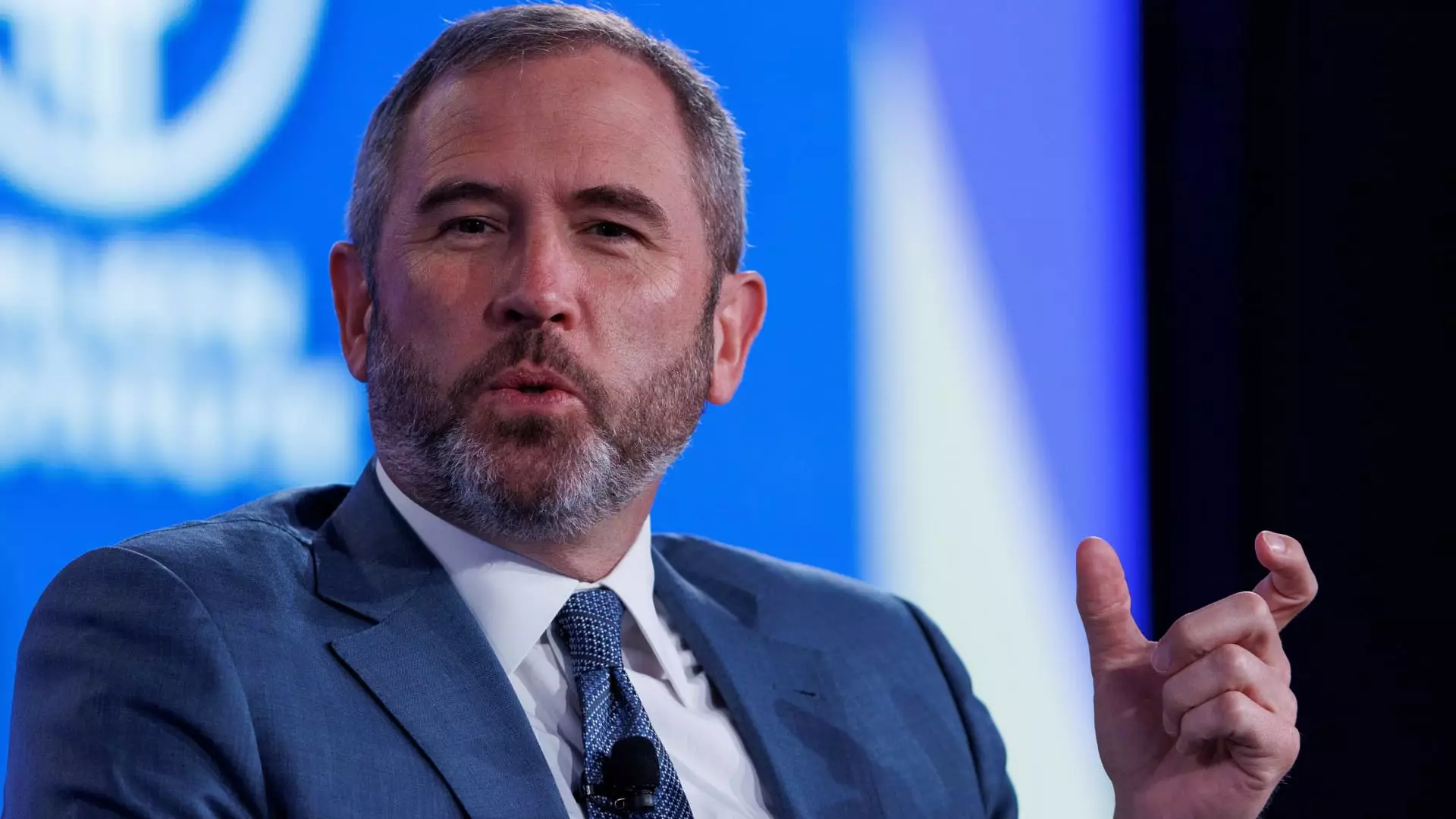The Securities and Exchange Commission (SEC) has concluded its contentious legal skirmish with Ripple, marking a pivotal shift in the ongoing saga of cryptocurrency regulation in the United States. Ripple’s long-fought battle against the SEC, which accused the company of illegally raising $1.3 billion through the sale of its XRP token, has culminated in the agency’s decision to drop its lawsuit. This development, emerging from a legal confrontation that began four years ago on the departing day of SEC Chair Jay Clayton, is particularly significant in the backdrop of a market grappling with regulatory uncertainties.
The SEC’s actions against Ripple were emblematic of a broader, aggressive stance the agency has taken towards the crypto industry under former Chair Gary Gensler, often perceived as antagonistic. This backdrop of distrust contributed to a fraught environment for cryptocurrency firms seeking compliance without clear guidelines. Ripple’s Chief Legal Officer, Stuart Alderoty, expressed the company’s victory as a beacon of hope for the entire crypto sector, asserting that Ripple’s fight has disrupted the SEC’s broader agenda against cryptocurrency in the U.S.
Ripple’s Resilience and Industry Repercussions
Ripple’s resilience has led to a narrative of triumph, not just for the company but for a beleaguered industry that has faced increasing scrutiny. The allegations leveled against Ripple hinged on whether XRP constitutes a security, a question fiercely debated within legal circles and the crypto community alike. In July 2023, a federal judge ruled that XRP is “not necessarily a security on its face,” fundamentally questioning the legal footing of the SEC’s case and dealing a sharp blow to Gensler’s regulatory strategy.
This victory for Ripple has been a catalyst for encouragement across the broader crypto landscape. The response was immediate, with XRP’s token price surging approximately 11% following the announcement of the lawsuit’s dismissal. This reaction underscores how Ripple represents more than just its own interests; the company’s legal battles have mirrored the collective struggles of various crypto entities against heavy-handed regulatory enforcement.
Additionally, the dismissal of lawsuits against other crypto giants, including Coinbase and Kraken, paints a picture of a systemic shift away from litigation towards potential cooperation. This transition could pave the way for a more favorable regulatory environment that encourages innovation and investment in the digital asset space.
A Shift in Regulatory Strategy
As Ripple celebrates its legal victory, the SEC appears to be pivoting toward a more cooperative relationship with the cryptocurrency sector. The formation of the Crypto Task Force, led by Commissioner Hester Peirce, signals a potential reorientation of the SEC’s posture from adversarial enforcement to constructive engagement. Peirce’s intent to develop a regulatory framework that fosters clarity rather than imposing punitive measures is a refreshing development for an industry that has long sought assurances and stability in its regulatory environment.
This newfound willingness to engage suggests a recognition within the SEC of the need for a more nuanced, well-defined approach to regulating digital assets. In a crucial about-face, the SEC rescinded Staff Accounting Bulletin 121, a controversial guideline that imposed significant compliance burdens on banks dealing with crypto assets. This move may well lead to increased institutional adoption and a more positive climate for further advancements in the cryptocurrency ecosystem.
The Political and Economic Landscape
In an intriguing intertwining of politics and cryptocurrency, Ripple’s legal battle intersects with broader themes in U.S. political dynamics. Former President Donald Trump, initially a critic of cryptocurrencies, has recently drummed up support among crypto firms as he positions himself as a pro-crypto figure. His rhetoric indicating plans to make the U.S. the “crypto capital of the planet” signifies a changing tide in political favorability towards digital assets.
Ripple’s contributions to Trump’s campaign may have been a strategic move, anticipating a shift in governance that could favor the digital asset space. This relationship reflects the intertwining interests of big technology and political power, where regulatory environments could be shaped by electoral dynamics.
In this landscape, the SEC’s recent initiatives, including the hosting of its first major crypto roundtable, suggest an openness to dialogue that was previously absent. This willingness might be seen as an acknowledgment of the innovation that cryptocurrencies represent and the potential economic benefits they could offer the American economy.
Continuing the Fight for Fair Regulation
Despite the victory for Ripple, the battle for fair and transparent regulatory frameworks isn’t over. Alderoty’s remarks resonate loudly, emphasizing that while one chapter may have closed, the push for clearer regulations will persist. The repercussions of the SEC’s actions, combined with Ripple’s triumph, reflect a critical juncture in the cryptocurrency narrative—one marked by resilience against regulatory overreach and an emerging hope for balanced frameworks.
As the industry continues to navigate its path forward, the outcomes of these legal battles will inevitably shape the future landscape of digital assets, instigating a dialogue on what a harmonious coexistence of innovation and regulation might look like. With a more engaged SEC potentially at the helm, the promise of a vibrant, responsible cryptocurrency market could soon rise from the ashes of conflict.

